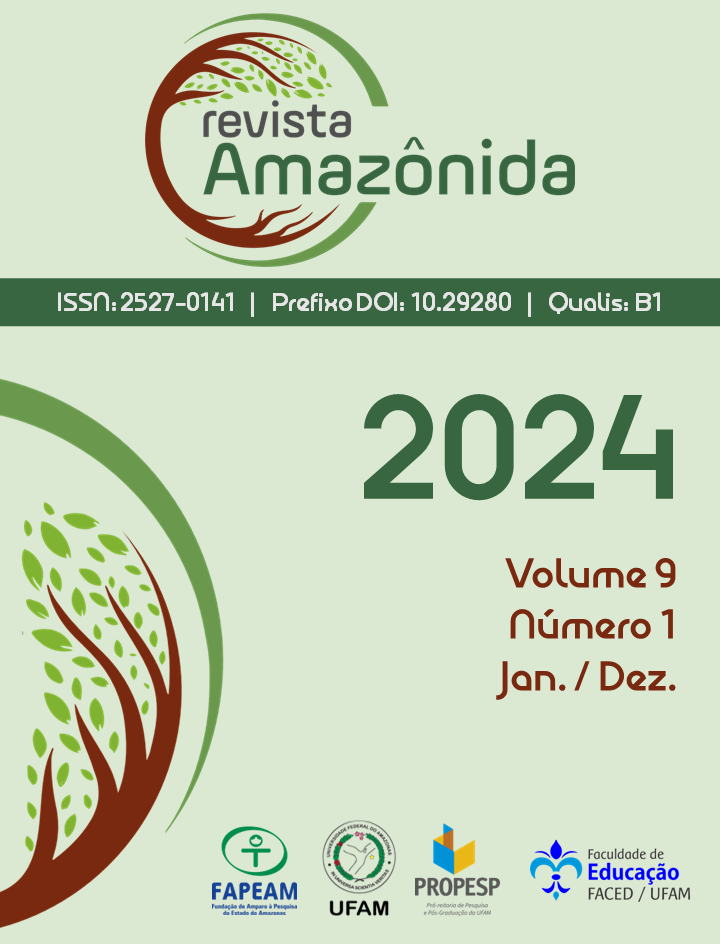Educar pra valer ou adestrar pra valer? Discussões sobre o trabalho docente
DOI:
https://doi.org/10.29280/rappge.v9i1.13086Keywords:
Programa Educar Pra Valer, Educação, Alienação, Adestramento, Trabalho DocenteAbstract
The following article presents a reflection on the Educate Pra Valer program in the interface with the teaching work developed in schools in the rural area of Vitória da Conquista. In addition, the close relationship of the Common National Curricular Base, BNCC, with the referred program, as well as the presence of international organizations and the private sector, has grown in the Brazilian context. The research was elaborated with the dialectical method as a guideline. The methodological resource used in the field research, with a view to revealing the reality involved in the multiple determinations that involve the object, was the semi-structured interview. Finally, it was found from the analysis of the interview that, although the program, in terms of its proposal and application, disregards the principles of a democratic school since it works from the perspective of numbers and does not value what is most important in the education that it is the people who make up education, however, there seems to be a certain fascination with the ideology of the program. So, having arrived here, some questions arise, some questions need to be answered, first, what does it matter to implement this program in a public school? Second, why does there seem to be a certain fascination with the program's ideology, instead of realizing the inconsistencies that permeate it? And finally, does this program that appears in line with the BNCC aim to emancipate or alienate, educate or train? In this sense, this reflective exercise is important, considering the elaboration of a new critique of political economy in the interface with education.
References
BOTTOMORE, Tom. Dicionário do Pensamento Marxista. Tradução: WaltensirDutra. Rio de Janeiro: Jorge Zahar Editora, 2001.
BRASIL. Base Nacional Comum Curricular: Educação é a base. Terceira versão. Ministério da Educação: Brasil, 2017.
BRASIL. Lei de Diretrizes e B. Lei n. 9.394/96, de 20 de dezembro de 1996.
BRITO, Regivane dos Santos. Formação continuada no âmbito do Programa Pacto Nacional Pela Alfabetização na Idade Certa (PNAIC) no município de Jaguaquara - Ba. / Regivane dos Santos Brito, 2018.
Cadernos Educar pra valer. https://www.pmvc.ba.gov.br/projeto-educar-pra-valer-apresenta-modelo-para-impulsionar-nota-do-ideb-em-conquista. Acesso em: 18/04/2023. Às 16:49 hs.
ESCOLAS DE ASSENTAMENTO EM VITÓRIA DA CONQUISTA: Disponível em: https://novo.qedu.org.br/escola/29278414-em-jose-gomes-novais/. Acesso em: 28 ago. 2022.
FREITAS, L. C. A reforma empresarial da educação: nova direita, velhas ideias. São Paulo: Expressão P opular, 2018. 160 p.
GUARESCHI, Pedrinho A. Mídia, educação e cidadania: para uma leitura crítica da mídia / Pedrinho A. Guareschi – Porto Alegre: Evangraf, 2018.
LUZ, Liliene Xavier. Educ. Soc., Campinas, v. 32, n. 115, p. 437-452, abr.-jun. 2011. Disponível em: https://www.cedes.unicamp.b. acesso em: 28/06/2023. ás 23:38 hs.
MAGALHÃES, J. E. P.; AFFONSO, C. R. A.; NEPOMUCENO, V. L. dá C. Trabalho docente sob fogo cruzado. Rio de Janeiro: Gramma, 2018.
MARRACH, S. A. Neoliberalismo e Educação. In: GUIRALDELLI JUNIOR, P. (Org.). Infância, Educação e Neoliberalismo. São Paulo: Cortez, 1996. p. 42-56.
MARX, K. Manuscritos econômico-filosóficos: terceiro manuscrito. Trad. Jesus Ranieri. São Paulo: Ed. Boitempo, 2004.
MARX, K. O Capital: crítica da economia política. 6 vol. Rio de Janeiro: Bertrand Brasil, 1996.
MOVIMENTO DOS TRABALHADORES RURAIS SEM TERRA (MST). Como fazemos a escola de educação fundamental. Caderno de Educação. MST, s. l., n. 9, 1999.
MOVIMENTO DOS TRABALHADORES RURAIS SEM TERRA (MST). Princípios da educação no MST. Porto Alegre: MST, 1996.
WILLIAMS, R. Marxismo e Literatura. São Paulo: Zahar, 1979.



























